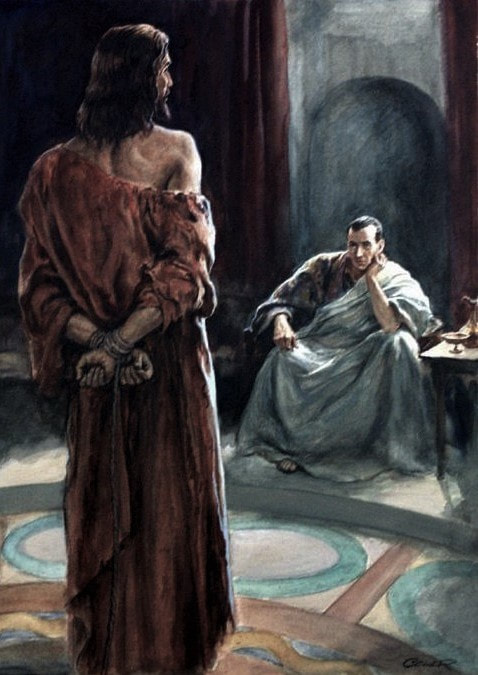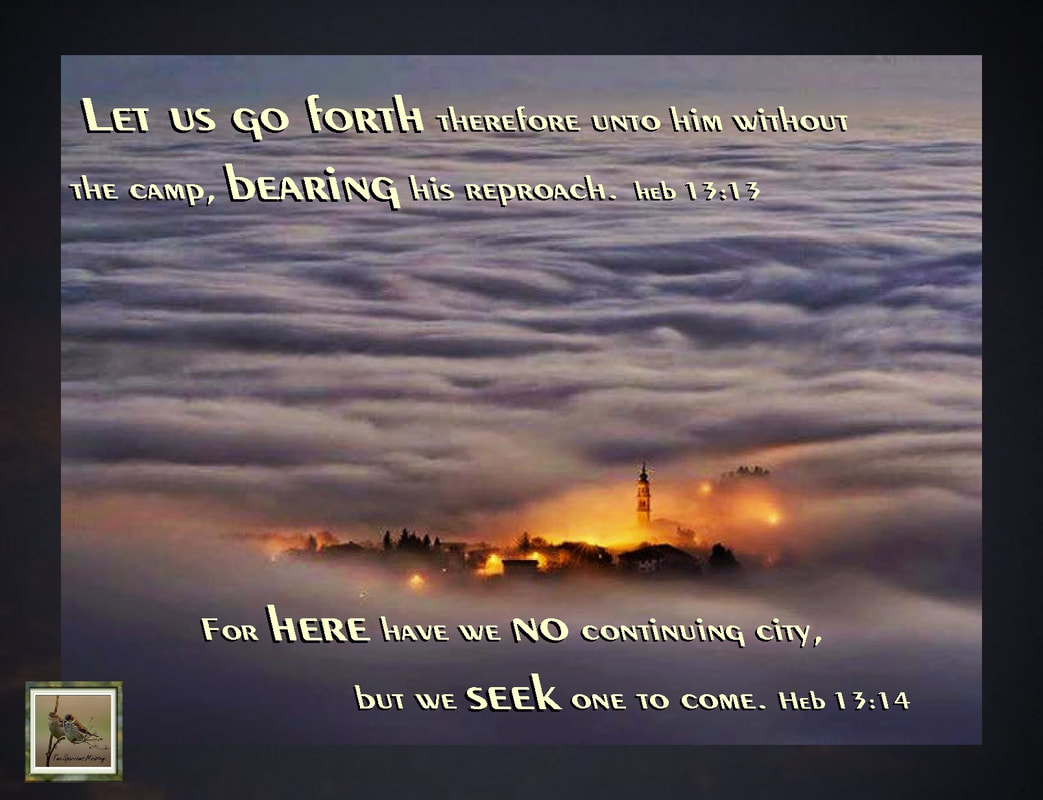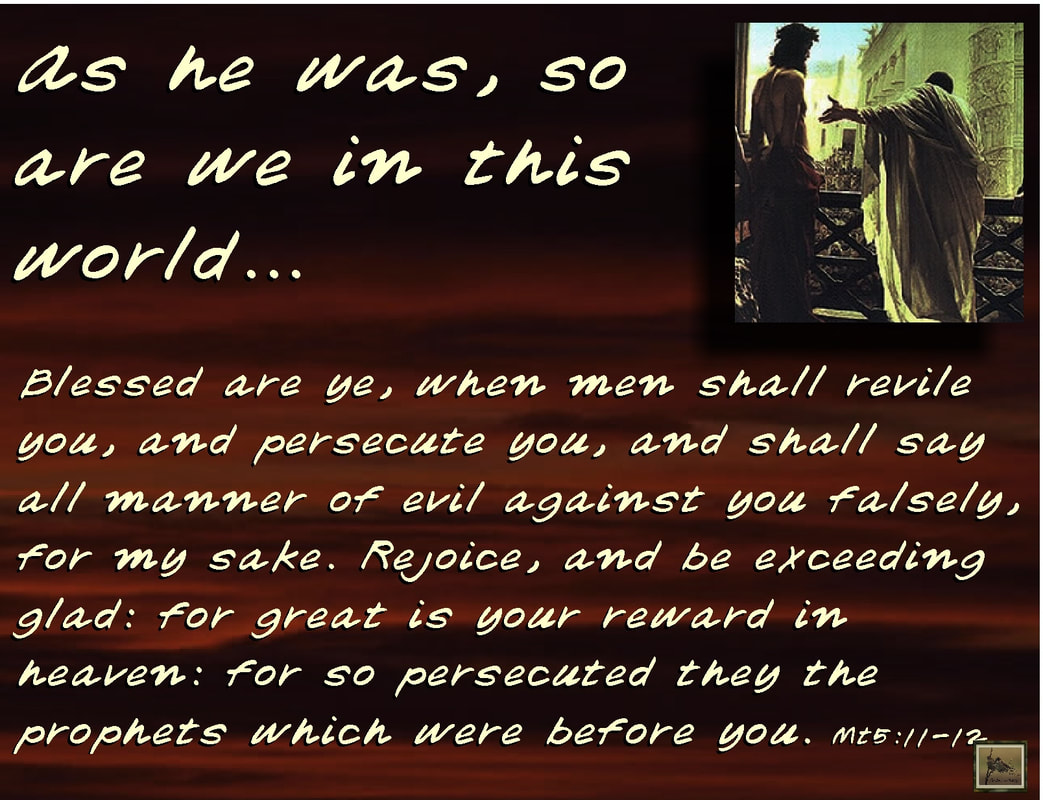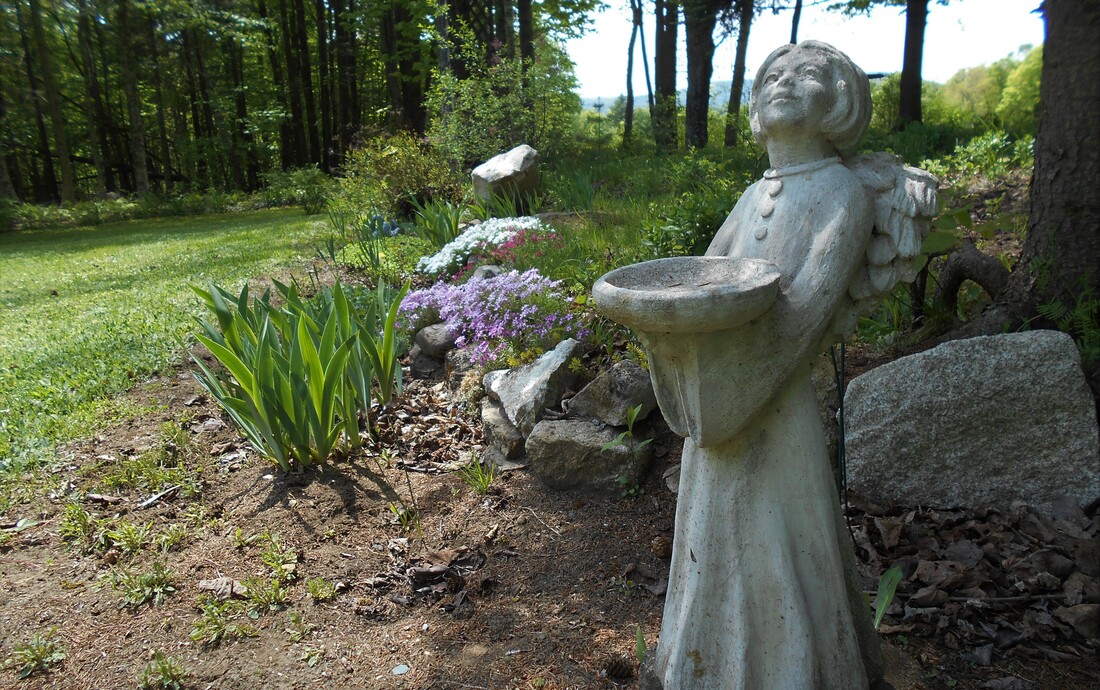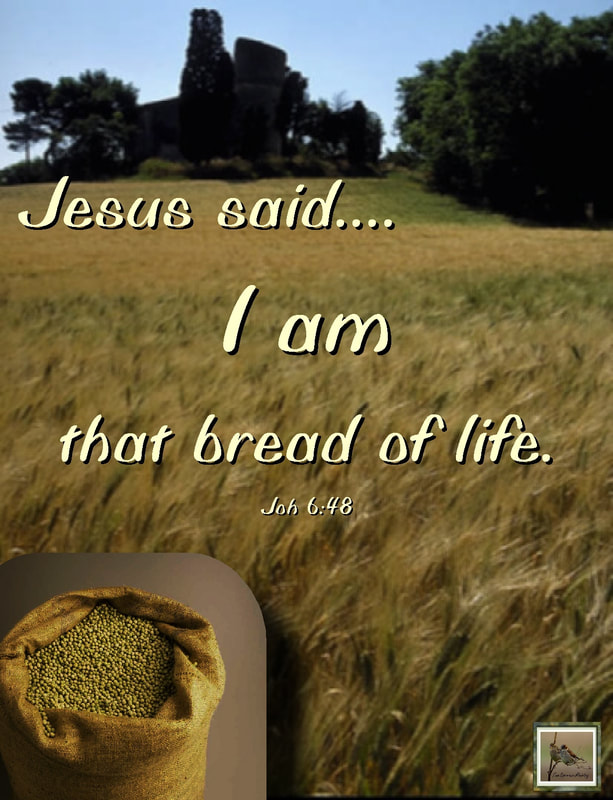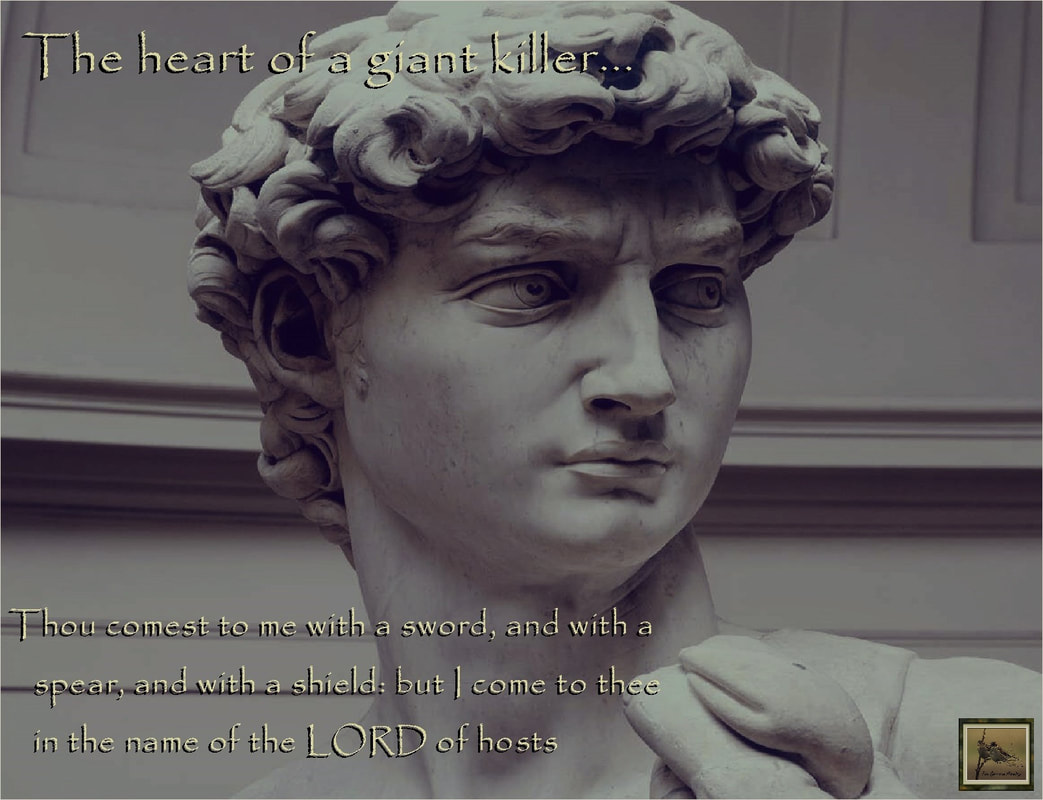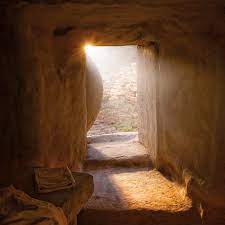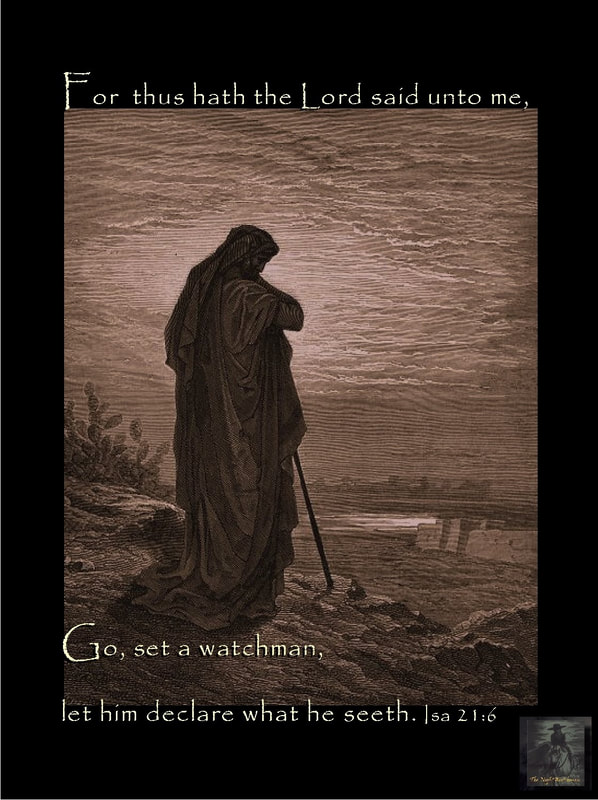|
"The king also himself passed over the brook Kidron." — 2Sa_15:23 David passed that gloomy brook when flying with his mourning company from his traitor son. The man after God's own heart was not exempt from trouble, nay, his life was full of it. He was both the Lord's Anointed, and the Lord's Afflicted. Why then should we expect to escape? At sorrow's gates the noblest of our race have waited with ashes on their heads, wherefore then should we complain as though some strange thing had happened unto us? The KING of kings himself was not favoured with a more cheerful or royal road. He passed over the filthy ditch of Kidron, through which the filth of Jerusalem flowed. God had one Son without sin, but not a single child without the rod. It is a great joy to believe that Jesus has been tempted in all points like as we are. What is our Kidron this morning? Is it a faithless friend, a sad bereavement, a slanderous reproach, a dark foreboding? The King has passed over all these. Is it bodily pain, poverty, persecution, or contempt? Over each of these Kidrons the King has gone before us. "In all our afflictions he was afflicted." The idea of strangeness in our trials must be banished at once and for ever, for he who is the Head of all saints, knows by experience the grief which we think so peculiar. All the citizens of Zion must be free of the Honourable Company of Mourners, of which the Prince Immanuel is Head and Captain. Notwithstanding the abasement of David, he yet returned in triumph to his city, and David's Lord arose victorious from the grave; let us then be of good courage, for we also shall win the day. We shall yet with joy draw water out of the wells of salvation, though now for a season we have to pass by the noxious streams of sin and sorrow. Courage, soldiers of the Cross, the King himself triumphed after going over Kidron, and so shall you. Charles Spurgeon-morning devotion Luk 6:22 Blessed are ye, when men shall hate you, and when they shall separate you from their company, and shall reproach you, and cast out your name as evil, for the Son of man's sake. Luk 6:23 Rejoice ye in that day, and leap for joy: for, behold, your reward is great in heaven: for in the like manner did their fathers unto the prophets. Php 1:28 And in nothing terrified by your adversaries: which is to them an evident token of perdition, but to you of salvation, and that of God. Php 1:29 For unto you it is given in the behalf of Christ, not only to believe on him, but also to suffer for his sake; PRIVILEGED TO SUFFER IN CHRIST’S BEHALF
Jesus, Founder and Perfecter of Our Faith Heb 12:1 Wherefore seeing we also are compassed about with so great a cloud of witnesses, let us lay aside every weight, and the sin which doth so easily beset us, and let us run with patience the race that is set before us, Heb 12:2 Looking unto Jesus the author and finisher of our faith; who for the joy that was set before him endured the cross, despising the shame, and is set down at the right hand of the throne of God. Do Not Grow Weary Heb 12:3 For consider him that endured such contradiction of sinners against himself, lest ye be wearied and faint in your minds.
Heb 12:4 Ye have not yet resisted unto blood, striving against sin. Rev 12:11 And they overcame him by the blood of the Lamb, and by the word of their testimony; and they loved not their lives unto the death. The Lord has been dealing with my heart for several days concerning this nation, and in much prayer-the Holy Spirit has been brooding over this coming weekend, and has laid on my spirit things that have been a point of prayer for some time. I didn't intend to speak of them publiclly, but God has asked me to. So, this is for His purposes. For some time, I've asked the Lord what His description is of this country-and what He sees, as He gazes down from heaven on this nation. This is what was given to me, and have been asked to share. 1. America-a nation adrift, and in denial. Denial of what her true condition is. The people as a whole continue to cling to past successes, and glories-that are gone, and will never return. 2. A nation who has rejected Me-their Creator, and Redeemer. They have chosen to be cursed-the devil has full access to every form of media and entertainment; and now has the helm of their ship-and will run America aground. The people have made this choice, and are living the consequences of them, and will continue to. (Over the span of this ministry, almost 10 years-I've posted many articles, videos, and material that attest to this.) 3. The majority of the people in America are willfully blind, again, it is by choice. They love their toys, their sports, games, their full schedule of life-but refuse Me, and reject My Word, and any of my counsel. They have rejected my laws, and have created their own laws-that blaspheme Me, and MY Son-Jesus, the Christ. Their gods-are many, and are leading them to their destruction. 4. The churches are dead in apostasy-empty tombs. They teach and preach confusion and rebellion-and reap what they sow. I have a remnant-that are precious to Me; as I've prompted you in years past-continue to pray for them; that they would endure to the end, and for My hand of protection over their lives, as the signs of the end of days continue to rise, and becomes more chaotic. Focus on them, and seek to bring a word of encouragement-and comfort, as My Spirit leads you. This has been heavy on my heart for many days-and I have no pleasure in speaking this. But, I must obey the Lord. Below, in response to the God's direction; there is a devotional for His people especially, but it certainly is also for YOU-if you will turn to the Lord, and surrender your life to Him. May God cover His people with special strength, peace, and protection in the days to come-in whatever we may face. Lorna Couillard Temporary Visible Things, Eternal Invisible Things 2Co 4:17 For our light affliction, which is but for a moment, worketh for us a far more exceeding and eternal weight of glory; 2Co 4:18 While we look not at the things which are seen, but at the things which are not seen: for the things which are seen are temporal; but the things which are not seen are eternal. For our light affliction . . . is working for us . . . [an] eternal weight of glory, while we do not look at the things which are seen, but at the things which are not seen. For the things which are seen are temporary, but the things which are not seen are eternal. (2Co_4:17-18)
Our gracious God wants to use the trials in our lives ("our light affliction") to produce for us eternal blessings ("eternal weight of glory"). He intends to use our daily difficulties to enlarge our spiritual capacity to experience more fully the glorious eternal realities of knowing, worshiping, and serving God forever! The Lord desires a full, rich inheritance to await us in heaven: "For so an entrance will be supplied to you abundantly into the everlasting kingdom of our Lord and Savior Jesus Christ" (2Pe_1:11). A life of great difficulty here on earth does not guarantee enriched experience in heaven. The process of earthly trials producing heavenly blessings is not automatic for God's children. Verse 18 tells us exactly when this process is occurring: "while we do not look at the things which are seen, but at the things which are not seen." The difficulties of life are turned to eternal blessings "while" we turn our attention upon unseen realities. Many believers waste their afflictions by focusing upon "the things which are seen." They set their minds on themselves, their circumstances, or some conventional human wisdom. Such an approach to life's problems fosters temporal frustrations, not eternal blessings. To accrue eternal benefits from temporal situations, we must look to unseen eternal resources, because "the things which are not seen are eternal." What are these unseen things? They are the resources of the grace of God. This includes grace for consolation and hope: "Our Lord Jesus Christ Himself, and our God and Father, who has . . . given us everlasting consolation and good hope by grace" (2Th_2:16). This also includes grace for endurance: "My grace is sufficient for you" (2Co_12:9). It actually includes "grace upon grace" (Joh_1:16) for whatever is needed. All of this is available through daily dependence upon the Lord. "For we walk by faith, not by sight" (2Co_5:7). The Christian life is lived by faith in the Lord, not by mastery of observable circumstances. God's people enter into His blessings by trusting in Him. It is by looking to the grace of God during our difficulties that afflictions are turned into an "eternal weight of glory." Day By Day By Grace It Was Impossible to Conceal Christ He could not be hid — Mar_7:24 Jesus was in retirement at this time. He had sought seclusion in the coasts of Tyre. It was perilous for Him to be seen just then, and the hour of His cross had not yet come. The tetrarch Herod had become suspicious. The Pharisees made no concealment of their hatred. The people who were so enthusiastic lately had taken deep offence at Jesus' teaching. And our Lord, recognizing the danger in all this, withdrew for a time to a half-heathen territory, where occurred that exquisite and precious incident—the visit of the Syrophenician woman. Now there was one thing which deeply impressed the disciples there. It was the impossibility of concealment for their Master. Quietly He had stolen away. No vision of Messiah stirred these villagers, for they were pagans and outside the covenant. Yet even there Jesus could not be hid— there were hearts which recognized Him as the Christ— and it was that which made so deep a mark on the watchful minds of the disciples. It is very probable that as the years went on that thought would grow in meaning for the twelve. John would recall it on the shores of Patmos; Peter amid the crowds of Babylon. And when they were wearied out with opposition, or crushed by the might and mockery of heathendom, it would come to them sometimes like cheering music, that Christ could not be hid. On that thought I wish to speak. I want to show you how grandly true it is. Firstly, we shall consider Jesus in the flesh. Secondly, Jesus in the world. Thirdly, Jesus in the heart.
Jesus in the Flesh First, then, considering Jesus in the flesh let us dwell for a moment on His lot. It would be hard to imagine any lot that offered a surer promise of obscurity. He was the child of a secluded village— a village that was not held in much repute. There He lived and there He humbly labored till He was some thirty years of age. And so deep was the retirement of these years, so void of rumors of the coming glory, that Nathanael, who belonged to Cana in the neighborhood, seems never to have heard a whisper of Him. Most men who are to come to greatness are on the road to it before the age of thirty. They have left their native village long ere that; they are out in the world and battling with its powers. But at thirty Christ was still at Nazareth, still toiling for His daily bread there, still acting as a father to His brothers, for His mother Mary was a widow now. Wealth is able to open many doors, but in the cottage at Nazareth there was no wealth. Influence is powerful in advancement, but what influence had a village carpenter? Learning can beat a way through every barrier, and bring a man into the court of kings, but to the laborious learning of His day, Jesus was utterly indifferent. Have you ever thought again how much in Jesus' character seemed to promise nothing but obscurity? I say that with the utmost reverence— you all know what our Lord means for me. There is not a trace in Him of lust of power, so often the characteristic of the great. If He had ever felt it He had crushed it down, as you may read in the Temptation narrative. There is not a sign in Him of any passion for fame— the spur that the clear spirit doth raise, as Milton puts it. And as for ambition, if He were ambitious, ambition should be made of sterner stuff. Christ was gentle. Christ was tenderhearted. Christ was compassionate to all the failures. And when men would have made Him a king He slipped away. He had a habit of slipping away from demonstrations. And He loved solitude, and lowly life, and the quiet beauty of pasture and of hill. And He was never happier than with His own, where the waves were lapping on the shore. There were men who became powerful then as now by taking the lead in patriotic movements. Christ never once identified Himself with any popular or patriotic movement. He stood apart a little from them all; went His own way in sunshine and in shadow; and, with a character of perfect poise, kept at the heart of all a perfect love. It is not usually characters like that which break through every barrier of concealment. It is men who are determined and aglow; who are intense even to narrowness. And it seems to me that the very poise of Christ, and His meekness, and the beauty of His love, are just the elements we might have reckoned on as making for the shelter of obscurity. Yet we all know that that was not the case. Jesus could not be hid. No prophet who ever lifted up his voice created such intense interest as Jesus. Wherever He went, crowds hung upon His steps. Wherever He was known to be, crowds gathered. He was talked of in the castle of the Herods. He was the conversation of the cottage. And there were some who loved Him, and there were some who scorned Him, and there were some who wished Him dead; but there were none who could be quite indifferent. And it was not just His miracles that did it, though His miracles deepened the impression. Nor was it just the wonder of His speech, although the charm of it was irresistible. It was the feeling, born they knew not how, and spreading mysteriously and steadily, that here was One who stood apart from all, and in whose being were unfathomed depths. You will never understand the life of Christ until you waken to that great impression. There was something about Him that suggested God, and men, detecting it, were awed. It shone through every veil that wrapped Him round— poverty, lowliness, suffering, and death— till those who loved Him knew, nothing could ever hide the Christ of God. Jesus in the World So much then about Jesus in the flesh; now shall we think of Jesus in the world? Our text is as true of the big world of Rome as it had been of the little world of Palestine. You know how powerless one often feels on entering a great city as a stranger. That is often a moment of great loneliness, and of an overwhelming sense of insignificance. And I think the apostles must have felt like that when they went out from the land of their nativity, and entered the cities of the Roman Empire, carrying the simple message of the Christ. Everywhere around them was philosophy, and they were ignorant of all philosophies. Everywhere were temples to the gods, and the only temples they had were themselves. Everywhere they were confronted with a powerful faith which was rooted in an immemorial past, and they had to preach the happenings of yesterday—the death of Jesus and the resurrection. Roman patriotism was against them, for every patriot clung to the old gods. Pride was against them, for it was intolerable that one should worship a Jew who had been crucified. And immorality was rampant everywhere, and superstition was a tremendous power, and every act of soldier or of emperor was interpenetrated with ancient ritual. What chance had Jesus in a world like that? He had an excellent chance of being buried. Roman historians made so little of Him that they could not even spell His name correctly. It was a gallant sight to see those eastern preachers carrying the message of their Christ abroad; but everyone was certain that in a dozen years Jesus Christ would be buried in oblivion. Yet the fact is, that is what never happened. The strange thing is, Jesus could not be hid. In the might of a power that was the power of God, Jesus rose conspicuous in Rome. They tried to hide Him by ignoring Him, but Jesus can never be ignored. They tried it by awful persecution, but persecution was powerless to do it. They tried to hide Him in the cloak of ridicule, wrapping Him in the motley of derision; but the more they tried it, taunting Him with folly, the more He silently showed Himself a King. His name became familiar in the markets. It was whispered by the soldiers in the camp. Where no philosopher had ever entered, Christ entered with His power and His peace. Until at last to the remotest west, and from the cottage to the court of Caesar, there was not a woman but had heard of Calvary, and not a man but knew the name of Jesus. Explain it as you will, these are the facts. That is what happened on the stage of history. Out of an obscurity like night, Christ rose into the gaze of every eye. And it just means that Jesus in the world was the very Jesus who had lived in Galilee. In Rome and Lyons, as in the coasts of Tyre, Jesus could not be hid. And is not the same thing eminently true as we survey the ages till today? The verdict of all the centuries is this, that there is that in Jesus which is irrepressible. I have seen a rock cleft into twain by a seedling-birch that rooted in the crannies. A seed had fallen, and the spring had quickened it, and it rent its prison-house and rose in beauty. And so in the ages has it been with Christ— He has been buried out of sight a thousand times, and a thousand times when hope was almost dead, the world has learned that He could not be hid. That is the meaning of the Reformation, when Christ stepped forth again out of the darkness. That is the meaning of every revival, when Christ is uplifted and every eye beholds Him. That is the meaning of all social effort, which is so earnest in our land today; for it is Christ who is moving in it all, and He cannot be hid. We have had, in the generation that is passing, an unparalleled criticism of the Bible. Did it not seem as if Christ were to be hid in the clouds of dust from the critics' chariot-wheels? Yet to how many of us Christ is nearer now, and His grace more real, and His love more wonderful; to how many the Bible is a more precious book, because it is the avenue to Him. Science has been powerless to hide Him, though it has lengthened time by millions of years. Astronomy has been powerless to hide Him, though it has cast the earth out of her central place. It is to Christ's ideals we still are working. It is by Christ's standards that we still are judging. It is in Christ's Spirit that we still are hoping for the weakest and the worst of human kind. Heaven and earth have passed away since Galilee, yet every letter you write, you date from Jesus. Commerce is vast and intricate and keen, yet commerce ceases the day when Jesus rose. On every hospital Christ is written large. On every orphanage His name is graven. Through every provision for friendless and for fallen, the pity of His heart is shining still. Think what you will of Christ, there is the fact, that history has been powerless to hide Him. You cannot avoid Him; He confronts you everywhere; He is magnificently and universally conspicuous. And yet this Christ was very meek and lowly, and shrunk from popularity and clamor, and was never happier than with His own, where the waves were lapping on the beach. Jesus in the Heart And now in closing, and in a word or two, shall we think of Jesus in the heart? In the heart within as in the world without, Jesus cannot be hid. Of course there is a very real sense in which, when He is ours, He is concealed. He is our life— and can you fathom life? Can you find its secret in the tiniest weed? Search for it, and it lurks within the shadows. Probe for it with the lancet, and it dies. Of every flower which blossoms that is true; and it is true of every Christian man. There must always be a secret in religion— something you cannot tell to anybody. The secret of the Lord is with them that fear Him—always a secret between Him and you. And so the Christian has a hidden life, and it is fed by thanksgiving and prayer, and no one shall ever know how deep it is, until the day when secrets are revealed. But if Christ in the heart is always hidden thus, it is just as true that He cannot be hid. If Christ be in you, everything is possible, except to hide Him from the light of day. You can never crush Him down and keep Him so. If you can do it, it is not the Christ. The power of the resurrection is within you, and it is mightier than human weakness. Slowly the Master will reveal Himself, like a root out of a dry ground, until at last, over the field of character, there is the swaying of branches in the wind. In one He will be seen in added strength; in another, in unexpected tenderness. One will be filled with a desire to serve; another with a new desire to pray. And some will walk in a new path of rectitude; and some will cease to fret and become happy; and some will no longer be rebellious, but will take up their cross, and be at peace. We may never be aware of what is happening. Moses wist not that his face shone. We shall cry to the last day we live, "God be merciful to me a sinner!" Yet if we trust Him, and if we long to be like Him, and if we have taken Him to be our own, Christ will use us, and He will not be hid in us, any more than in the coasts of Sidon. A Broken and Contrite Spirit Psa 51:17 The sacrifices of God are a broken spirit: a broken and a contrite heart, O God, thou wilt not despise. The Lord in us is full of might and power; yet He will not intrude upon our will and overwhelm us. Sometimes we wish He would do so. But that is not His way. He desires us to cooperate with His Spirit. When we come to Him and present ourselves as instruments to be used, He begins to mold us and shape us into suitable vessels. If we see this process as beginning and ending in a one-time act of consecration, or a single moment of surrender, or a solitary life-changing event, then we underestimate just how thorough and far-reaching this process will be. It spans many years and is marked with many mountains and valleys, gardens and deserts. The committed Christian must expect to encounter many seasons of light and darkness, sunshine and rain, heat and cold, sweetness and bitterness. At the outset one may think he will be happy, light, and carefree now that he has tasted some of the Lord's power. He will rejoice for that season, and then the sun will set and the dark night of the soul will begin. All that was gained now seems to have been lost. The former sweetness is nowhere to be found. Everything is dreary and burdensome. When this season is accomplished, the sun rises again and the Christian rediscovers the joy of his salvation. The vows are renewed and the spirit begins to soar. Prayer and praise now pour forth like water. Everything is effortless and spontaneous. But then, strangely enough, that season passes and the dark night sets in once again. Why is this? The Lord is teaching us to live apart from our circumstances. Eventually we will learn how to live above our environment and walk by faith, not by sight. I remember times when I so felt the presence of God that I thought surely I could not sin after such an experience. Remembering my many sins and failures, I surmised that was all behind me now that I had tasted of such a heavenly sphere. Failure seemed impossible. How happy I was that now I had met the Lord in a powerful way, or had some spiritual experience, or heard some special word from the Lord, for with THIS I was sure to be victorious from here onward. How utterly distressing it was to find myself less than a week later in the same sin and defeat as before! Perplexed, I would struggle along until Sunday, where I would go forward to receive the prayers of the saints. Once again I was lifted up into the throne room and felt as though I could reach out and touch the Lord. Surely I need not fail again! But of course, once I left the mountaintop and descended again into the valley, I found the old lusts ever present with me, ready to reclaim me as soon as I arrived back from my latest encounter with the Lord. We cannot expect to have a single mountaintop experience with the Lord and then assume from henceforth the work of the Cross is completed in us. When we are standing with the Lord in the New Jerusalem we may lay down the Cross. Until then, we dare not entertain the thought that we have already been made perfect. We must deny ourselves and take up the Cross daily. If there is a seeming difference in the "level" of anointing or power or spirituality among believers it is not because some have more of the Lord than others. Let this be an encouragement to you. Indeed, Christ is not divided, and of His fullness we all share. We are all baptized into the same Spirit. The difference is some saints are more broken than others. Some have passed through many seasons of tearing down and building up, while some after many years of experience are still resisting the Lord and refusing to lay down their lives. Some have recognized God's dealings and have submitted to them, while others have misunderstood or been totally ignorant of God's dealings with them. The ones who have been sufficiently broken eventually manifest very little of their self, and very much of Christ. God must work long and hard with us to bring us to this place, but what a glorious day it is when we are able to bow our heads and finally surrender everything. What joy it is to look back over all that the Lord has led us through and realize His purpose in both the good times and the bad times, to behold the goodness and the severity of God in His dealings with us. In Spurgeon's Treasury of David, we see a deeper understanding of Psalm 51:17-and David's restoration: "The sacrifices of God are a broken spirit.” All sacrifices are presented to thee in one, by the man whose broken heart presents the Saviour's merit to thee. When the heart mourns for sin, thou art better pleased than when the bullock bleeds beneath the axe. “A broken heart” is an expression implying deep sorrow, embittering the very life; it carries in it the idea of all but killing anguish in that region which is so vital as to be the very source of life. So excellent is a spirit humbled and mourning for sin, that it is not only a sacrifice, but it has a plurality of excellencies, and is pre-eminently God's “sacrifices.” “A broken and a contrite heart, O God, thou wilt not despise.” A heart crushed is a fragrant heart. Men contemn those who are contemptible in their own eyes, but the Lord seeth not as man seeth. He despises what men esteem, and values that which they despise. Never yet has God spurned a lowly, weeping penitent, and never will he while God is love, and while Jesus is called the man who receiveth sinners. Bullocks and rams he desires not, but contrite hearts he seeks after; yea, but one of them is better to him than all the varied offerings of the old Jewish sanctuary." Create in Me a Clean Heart, O God Psa 51:1 To the chief Musician, A Psalm of David, when Nathan the prophet came unto him, after he had gone in to Bathsheba. Have mercy upon me, O God, according to thy lovingkindness: according unto the multitude of thy tender mercies blot out my transgressions.
Psa 51:2 Wash me throughly from mine iniquity, and cleanse me from my sin. Psa 51:3 For I acknowledge my transgressions: and my sin is ever before me. Psa 51:4 Against thee, thee only, have I sinned, and done this evil in thy sight: that thou mightest be justified when thou speakest, and be clear when thou judgest. Psa 51:5 Behold, I was shapen in iniquity; and in sin did my mother conceive me. Psa 51:6 Behold, thou desirest truth in the inward parts: and in the hidden part thou shalt make me to know wisdom. Psa 51:7 Purge me with hyssop, and I shall be clean: wash me, and I shall be whiter than snow. Psa 51:8 Make me to hear joy and gladness; that the bones which thou hast broken may rejoice. Psa 51:9 Hide thy face from my sins, and blot out all mine iniquities. Psa 51:10 Create in me a clean heart, O God; and renew a right spirit within me. Psa 51:11 Cast me not away from thy presence; and take not thy holy spirit from me. Psa 51:12 Restore unto me the joy of thy salvation; and uphold me with thy free spirit. Psa 51:13 Then will I teach transgressors thy ways; and sinners shall be converted unto thee. Psa 51:14 Deliver me from bloodguiltiness, O God, thou God of my salvation: and my tongue shall sing aloud of thy righteousness. Psa 51:15 O Lord, open thou my lips; and my mouth shall shew forth thy praise. Psa 51:16 For thou desirest not sacrifice; else would I give it: thou delightest not in burnt offering. Psa 51:17 The sacrifices of God are a broken spirit: a broken and a contrite heart, O God, thou wilt not despise. Psa 51:18 Do good in thy good pleasure unto Zion: build thou the walls of Jerusalem. Psa 51:19 Then shalt thou be pleased with the sacrifices of righteousness, with burnt offering and whole burnt offering: then shall they offer bullocks upon thine altar. Five Smooth Stones - The Equipment of Faith 1Sa 17:38 And Saul armed David with his armour, and he put an helmet of brass upon his head; also he armed him with a coat of mail. 1Sa 17:39 And David girded his sword upon his armour, and he assayed to go; for he had not proved it. And David said unto Saul, I cannot go with these; for I have not proved them. And David put them off him. 1Sa 17:40 And he took his staff in his hand, and chose him five smooth stones out of the brook, and put them in a shepherd's bag which he had, even in a scrip; and his sling was in his hand: and he drew near to the Philistine. This was my attitude in life, and service to God in my youth: Excerpt from Alexander Maclaren "Saul meant to honour as well as to secure David by dressing him in his own royal attire, and by encumbering him by the help of sword and helmet. And David was willing to be so fitted out, for it is no part of the courage of faith to disdain any outward helps. But he soon found that he could not move freely in the unaccustomed armour, and flung it off, like a wise man. His motive was partly common sense, which told him not to choose weapons that his antagonist could handle better than he; and partly reliance on God, which told him that he was safer with no armour but his shepherd’s dress and with only his sling in his hand. So there he stands, drawn for us with wonderful vividness, in one hand his staff, in the other his sling, both familiar and often used, and by his side the simple wallet which had held his frugal meal, and now received the smooth pebbles that he picked up as he passed the gulley to the Philistine side of the valley. How graphically the contrast is drawn between him and Goliath, as the latter conies forth swelling with his own magnificence, and preceded by his shield-bearer! He was ‘brass’ all over; note the kind of amused emphasis with which the word is repeated in the half-satirical and marvellously lifelike portrait of him in 1Sa_17:5-8; ‘brass’ here, ‘brass’ there, ‘brass’ everywhere; and, not content with one shield dangling at his back, he has a man to carry another in front of him as he struts. David seems to have crossed the ravine, and to have come close up to Goliath before he was observed; and then, with almost a snort of contempt, the giant resents the insult of sending such a foe to fight him with such weapons. Perhaps he was nearer the truth than he thought, when he asked if he was a dog; and any stick will do, as the proverb says, to beat that animal, especially if God guards the hand that holds it. The five smooth stones have become the symbol of the insignificant means, in the world’s estimate, which God uses in faithful hands to slay the giants of evil. The weapons of our warfare are not carnal, but they are mighty. Faith unarmed is armed with more than triple steel, and a sling in its hand is more fatal than a sword. Sometimes in kindness and sometimes in malice, the world tempts us to fight evil with its own weapons, and to put on its unfamiliar armour. The Church as a whole, and individual Christians, have often been hampered, and all but smothered, in Saul’s harness. The more simply we keep ourselves to the simple methods which the word of God enjoins, and to the simple weapons which ought to be the easiest for a Christian, the more likely shall we be to conquer. Goliath is not to be encountered with sword and armour which is, after all, but a shabby copy of the tons of brass which he wears, but he does not know what to make of the sling, and does not see the stone till it crashes his skull in. Note faith’s anticipation of victory. The dialogue before the battle has many parallels in classical times and among savage peoples. Goliath’s bluster is full of contempt of David and truculent self-confidence. Its coarseness is characteristic,-he will make his boyish antagonist food for vultures and jackals. It is exactly what a bully would say. David’s answer throbs with buoyant confidence, and stands as a stimulating example of the temper in which God’s soldiers should go out to every fight, no matter against what odds. It fully recognises the formidable armoury of the enemy,-sword for close quarters, spear to thrust with, and javelin to fling from a distance, every weapon that ingenuity could fashion and trained skill could wield. Goliath was a walking arsenal, and little David took count of his weapons as they clanked and flashed. It is no part of faith’s triumph to ignore the number and sharpness of the enemy’s arms. But faith sees them all, and keeps unterrified and unashamed of the poor leathern sling and smooth stones. The unarmed hand which grasps God’s hand should never tremble; and he who can say ‘I come . . . in the name of the Lord of hosts,’ has no need to be afraid of an army of Goliaths, though each bristled with swords and spears like a porcupine. The great name on which David’s faith rested, ‘the Lord of hosts,’ appears to have sprung into use in this epoch, and to have been one precious fruit of its frequent wars. Conflict is blessed if it teaches the knowledge of the unseen Commander who marshals not only men, but all the forces of the universe and the armies of heaven, for the defence of His servants and the victory of His own cause. The fulness of the divine name is learned by degrees, as our needs impress the various aspects of His character; and the revelation contained in this appellation is the gift of that fierce and stormy time, a possession for ever. He who defies the armies of Israel has to reckon with the Lord of these armies, whose name proclaims at once His eternal, self-originated, and self-sustained being, His covenant, His presence with His earthly host, and the infinite ranks of obedient creatures who are His soldiers and their allies. That is ‘the Name’ in the strength of which we may ‘set up our banners’ and be sure of victory. Note how David flings back Goliath’s taunts in his teeth. He is sure that God will conquer through him, and, though he has no sword, that he will somehow hack the big head off; and that it is the host of the Philistines on whom the vultures and jackals are to feed to-day. His faith sees the victory before the battle is begun, and trusts, not in his own weak power, but only ‘in the name of the Lord.’ Note, too, the result which he expects-no glory for himself, though that came unsought, when the shrill songs from the women of Israel met the victors, but to all the world the proof that Israel had a God, and to Israel (‘this assembly’) the renewed lesson of their true weapons and of their Almighty Helper. Such utter suppression of self is inseparable from trust in God, and without it no soldier of His has a right to expect victory. To fight ‘in the name of the Lord’ requires hiding our own name. If we are really going to war for Him, and in His strength, we ought to expect to conquer. Believe that you will be beaten, and you will be. Trust to Him to make you ‘more than conquerors,’ and the trust will bring about its own fulfilment. Observe the contrast in 1Sa_17:48 between the slow movements of the heavy-armed Philistine and the quick run of the shepherd, whose ‘feet were as hind’s feet’ (Psa_18:33). Agility and confident alacrity were both expressed. His feet were shod with ‘the preparedness of faith.’ Observe, too, the impetuous brevity of the account in 1Sa_17:49, of the actual fall of Goliath. The short clauses, coupled by a series of ‘ands,’ reproduce the swift succession of events, which ended the fight before it had begun; and one can almost hear the whiz of the stone as it crashes into the thick head, so strangely left unprotected by all the profusion of brass that clattered about him. The vulnerable heel of Achilles and the unarmed forehead of Goliath illustrate the truth, ever forgotten and needing to be repeated, that, after all precautions, some spot is bare, and that ‘there is no armour against fate.’ The picture of the huge ‘man-mountain’ fallen upon his face to the earth, a huddled heap of useless mail, recalls the words of a psalm, ‘When the wicked, even mine enemies and my foes, came upon me to eat up my flesh, they stumbled and fell’ (Psa_27:2). Is it fanciful to hear in that triumphant chant an echo of Goliath’s boast about giving his flesh to the fowls and the beasts, and a vision of the braggart as he tottered and lay prostrate? Observe, too, the contemptuous reiteration of ‘the Philistine,’ which occurs six times in the four verses (1Sa_17:49-51). National feeling speaks in that. There is triumph in the sarcastic repetition of the dreaded name in such a connection. This was what one of the brood had got, and his fate was an omen of what would befall the rest. The champion of Israel, the soldier of God, standing over the dead Philistine, all whose brazen armour had been useless and his brazen insolence abased, and sawing off his head with his own sword, was a prophecy for the Israel of that day, and will be a symbol till the end of time of the true equipment, the true temper, and the certain victory, of all who, in the name of the Lord of hosts, go forth in their weakness against the giants of ignorance, vice, and sin. ‘This is the victory that overcometh the world, even our faith. Alexander Maclaren"
Ah, but you may say "I'm not a youth any longer, age has overtaken me-I'll refer you to Caleb-who conquered his mountains, and won his victories at 85 years of age. I've acquired his attitude in my own life now-at almost 70. If I don't make it to 85-it will still be my mindset till God takes me home. These verses are a good reference to use, when discouragement comes-and it does to all of us: 1Co 1:27 But God hath chosen the foolish things of the world to confound the wise; and God hath chosen the weak things of the world to confound the things which are mighty; 1Co 1:28 And base things of the world, and things which are despised, hath God chosen, yea, and things which are not, to bring to nought things that are: 1Co 1:29 That no flesh should glory in his presence. 1Co 1:30 But of him are ye in Christ Jesus, who of God is made unto us wisdom, and righteousness, and sanctification, and redemption: 1Co 1:31 That, according as it is written, He that glorieth, let him glory in the Lord. Caleb's Request and Inheritance Jos 14:6 Then the children of Judah came unto Joshua in Gilgal: and Caleb the son of Jephunneh the Kenezite said unto him, Thou knowest the thing that the LORD said unto Moses the man of God concerning me and thee in Kadeshbarnea. Jos 14:7 Forty years old was I when Moses the servant of the LORD sent me from Kadeshbarnea to espy out the land; and I brought him word again as it was in mine heart. Jos 14:8 Nevertheless my brethren that went up with me made the heart of the people melt: but I wholly followed the LORD my God. Jos 14:9 And Moses sware on that day, saying, Surely the land whereon thy feet have trodden shall be thine inheritance, and thy children's for ever, because thou hast wholly followed the LORD my God. Jos 14:10 And now, behold, the LORD hath kept me alive, as he said, these forty and five years, even since the LORD spake this word unto Moses, while the children of Israel wandered in the wilderness: and now, lo, I am this day fourscore and five years old. Jos 14:11 As yet I am as strong this day as I was in the day that Moses sent me: as my strength was then, even so is my strength now, for war, both to go out, and to come in. Jos 14:12 Now therefore give me this mountain, whereof the LORD spake in that day; for thou heardest in that day how the Anakims were there, and that the cities were great and fenced: if so be the LORD will be with me, then I shall be able to drive them out, as the LORD said. Jos 14:13 And Joshua blessed him, and gave unto Caleb the son of Jephunneh Hebron for an inheritance. THE MAN WHO WHOLLY FOLLOWED HIS GOD The lot was doubtless adopted to obviate cause for jealousy or charges of favoritism. It denoted God’s choice, Pro_16:33; Pro_18:18. It could be used only with very evident reliance on Him, and in our day has been superseded by the sending of the Comforter to teach us all things, Joh_16:13. It was long since Caleb had cut down the bunch of grapes near the spot of his choice, but he had never forgotten it; and now God, who had read his purpose, arranged that what his heart loved best his hand should hold and keep: “Him will I bring into the land whereinto he went,” Num_14:24. Out of entire surrender to God springs a faith that dares to claim the realization of an olden promise, Jos_14:12. The fact that the Anakim held Hebron did not stagger the old veteran. It was enough that God had promised! How strong and vigorous, even to hoar hairs, are those who walk with God, Isa_40:31! F.B. Meyer Caleb had another spirit; not only a bold, generous, courageous, noble, and heroic spirit, but the Spirit and influence of God, which thus raised him above human inquietudes and earthly fears. Therefore he followed God fully; literally, "and he filled after me:" God shewed him the way he was to take and the line of conduct he was to pursue, and he filled up this line, and in all things followed the will of his Maker. Fear was not in the equation, his faith overrode every obstacle, and every enemy. Give Me This Mountain
I've learned some very hard, clear lessons in life since my husbands death, that I saw many seniors go through when I took care of some of them. Doing this outreach ministry has also opened my eyes, and taken off the blinders, and the rose colored glasses. Like spirits attract like spirits-and here in my area, the troublemakers and scheming manipulators run together like a pack of wolves. The kids they have are raised to be just like them, you can get the picture.
People like their sin-they want the booze, the drugs, the party life-and if your in the way-you will soon find yourself a target of their tricks, scheming troublemaking, and they'll gather together to achieve their goal-see how far they can push you, till you lose your temper and get a reaction out of you; it's their entertainment. The worst part of this is, many times it's older people, men and women both, who've taught the teenage kids, to be just like them. Devious, deceitful, liars, scheming troublemakers, both male and female. I've been harassed, targeted, and threatened to have my house burned down, and numerous other ongoing insults over the years. If my house does burn down-I'll go immediately to my insurance company, and give the people who've made the statements, and they will hire an arson investigator. I've prayed against it, and stand in faith for God's hand to cover me. He knows what's going on, and I'm not afraid. I also am not asking for sympathy, or pity-I'm simply stating facts of what life is here for me, on a regular basis. My armor is on, and will stay on-my only source of love, understanding, and companionship-is God. And, God is enough. I'm sharing this much here now, for other's, not myself-who may read this, and are going through the same battles, and you can know; someone else understands and cares. And, I'll direct you to the Lord Jesus-who knows and can help you in your time of need. A couple of times I've lost my temper, and retaliated, and had to repent, asking for God's help to not turn into the same kind of hardcore person. Last night was one of those times-I'm not perfect, and sometimes it takes a lot of self control to not do, what I'd like to do. It's at these times-prayer is the greatest weapon. I've read comments from many Christians across the country who are dealing with the same kind of troubles; violence, brutality, and coldhearted conduct is rising everywhere. I post articles on this problem on the news page of this site. My mind is just as clear and sharp now, as it was in my 30's, but I'm treated many times as if I have dementia, or am senile. The conduct and behavior of many is rude, and cold. The snotty nosed kids old enough to have cars on the roads-are a dread. Go ahead-put me on your hate list, along with many other's who have. I really don't care. Like Caleb-I've set my face like a flint, and am going to stand this ground, and look the enemy-whoever it may be-square in the face, and deal with it. This is my answer to the critics, and enemies. Lorna Couillard Living In Orwell's 1984 When 1984 arrived, I was 31 years old, and watched the movie being promoted again, it was an almost daily topic for a long time-again. But, what Orwell was depicting in his book really hadn't arrived yet in the world, it was close, but not to the full degree he had portrayed. We are there now-and it's just about hell on earth. But, you couldn't convince most people-they are hypnotized, brainwashed, and immersed in the technologies, and have swallowed the propaganda-hook, line, and sinker. No one younger than thirty remembers what it was like, to have real privacy, and they don't care. Now there's been several generations of people saturated with TV, movies, computers, on-line videos, and hacking devices. The everyday person is now able to acquire them to probe and pry into the private life of just about anyone they wish- and has made a society void of a conscience, or any sense of remorse at putting you under their scrutiny, and microscope-and giving them the power to cause all manner of torment, and ruin someone by many means. For several years now, new vehicles have the ability to be tracked with GPS devices-and many people use them to track you on the roads-I get very tired of it. I wish I'd kept an older model truck-that can't be tracked. The computer is a device that can accomplish a lot of good, but also a weapon in the hands of those who use it as a spying tool-to probe into your private life, watch you on the other side of the screen to catch you doing something, or saying something they can use against you-and broadcast it around the world; and destroy you if possible. They don't care if what they're spreading is a half-truth, or an exaggeration; the intention is to ruin you. The worst part of this is, people who do this will play-act, and pretend they aren't doing it, and accuse you of mental problems if you face them about it. This is the sick world everybody lives in now, and again, nobody cares. The bible talks about the problems this causes, and what to do about it, some verses and some commentary is posted below-it may help someone who's as tired of this hellish situation as I am.
Mind Your Own Business The bible has some counsel on the problems we face in today's probing/spying society. I can't control what other's do-but I can control what I do, and that's what matters. It's important to realize that God is watching all of this-without a computer, or tracking device. The all-knowing, all-seeing God is watching and listening to everything we are doing and saying, and His judgments are always righteous. He not only knows the actions and decisions we make-He knows the motives of the heart. He knows when you are weary, worn, sick, being torn by multiple stresses-his measure of judgment is not the same as man's-His motives are always for your good, not to destroy you. If God chastens it's because He's trying to teach us, to correct us. His motives are not to destroy, but to guide, counsel, and bring us to a place of soundness, and victory. As Christians living in this wickedness, Peter gives some guidance that helps us judge ourselves, and our conduct: 1Pe 4:14 If ye be reproached for the name of Christ, happy are ye; for the spirit of glory and of God resteth upon you: on their part he is evil spoken of, but on your part he is glorified. 1Pe 4:15 But let none of you suffer as a murderer, or as a thief, or as an evildoer, or as a busybody in other men's matters. Commentary from John Gill: But let none of you suffer as a murderer,.... The punishment for murder was death by the law of God, Gen_9:6 My comment: The above is correct-however, I'll add the important truth that by the blood of Christ- anyone, no matter what the sin, can by cleansed, forgiven; and washed clean. Moses, David, Paul, and other's in the bible were murderer's- and were forgiven, and went on to serve the Lord, and were used mightily by God. After David was convicted by the prophet Nathan of his sin with Bathsheba, and plotting to have her husband killed-David repented in anguish and sorrow-referenced in Psalm 51. Moses spent many years in the desert after killing the Egyptian-it was in the desert that God appeared to him in the burning bush-and called him to set his people free from the bondage of Pharaoh. God uses broken people who have sinned greatly. A broken, and contrite heart, God will not despise-His mercy, is new every morning. No matter what your sin may be-there is forgiveness available for you. Psa 34:18 The LORD is nigh unto them that are of a broken heart; and saveth such as be of a contrite spirit. Psa 51:17 The sacrifices of God are a broken spirit: a broken and a contrite heart, O God, thou wilt not despise. or as a thief; whose fine or mulct, according to the Jewish law, was a fivefold or fourfold restitution, according to the nature of the thing that was stolen, Exo_22:1 or as an evildoer; a breaker of any of the laws of God or men, which are of a moral nature, and for the good of civil society: or as a busybody in other men's matters; "or as a bishop in another man's diocese"; that concerns himself in things he has nothing to do with, and neglects his own affairs, and lives in idleness, and upon the spoil of others; or takes upon him to manage, direct, order, and command other men's servants, or persons that do not belong to him, to do his business, or whatsoever he pleases. The Vulgate Latin version renders it, "a desirer of other's goods"; and the Ethiopic version, "a covetous desirer of other's things"; and so is led on by an insatiable thirst for them, to obtain them in an evil way, either by secret fraud, or open violence and oppression. To suffer in any such cases is scandalous and dishonourable, and unbecoming the character of a Christian. Below is a humorous excerpt on the subject-in story form, that makes the point. Mind Your Own Business “Come, hurry up!” said the second hand of a clock to the minute hand; “you’ll never get round in time if you don’t. See how fast I’m going,” continued the fussy little monitor, as it fretted round on its pivot. “Come, hurry up!” said the minute to the hour hand, utterly oblivious of being addressed by the second hand. “If you don’t be quick you’ll never be in at the stroke of one.” “Well, that’s just what our young friend there has been saying to you.” At this point the clock pealed forth the hour as the hour hand continued, “You see we’re all in time-not one of us behind. You take my advice: Do your own work in your own way, and leave others alone.” Moral-Mind your own business. (Great Thoughts.) Related Scriptures Mat 5:11 Blessed are ye, when men shall revile you, and persecute you, and shall say all manner of evil against you falsely, for my sake.
1Th 4:11 And that ye study to be quiet, and to do your own business, and to work with your own hands, as we commanded you; 1Ti 5:13 And withal they learn to be idle, wandering about from house to house; and not only idle, but tattlers also and busybodies, speaking things which they ought not. 2Th 3:11 For we hear that there are some which walk among you disorderly, working not at all, but are busybodies. 2Th 3:12 Now them that are such we command and exhort by our Lord Jesus Christ, that with quietness they work, and eat their own bread. But are busy bodies; though they work not at all at their own business, yet are very busy in other men's matters, and have the affairs of kingdoms, and cities, and towns, and neighbourhoods, and churches, and families, upon their hands; which they thrust themselves into, and intermeddle with, though they have no business at all with them: these wander from house to house, and curiously inquire into personal and family affairs, are tattlers, full of prate and talk, and, like the Athenians, spend all their time in telling or hearing new things; and they also speak things which they should not; they carry tales from one to another, and privately whisper things to the disadvantage of their fellow creatures and Christians, and backbite and slander them. These are the pests of nations and neighbourhoods, the plagues of churches, and the scandal of human nature; see 1Ti_5:13. excerpt from John Gill |
Welcome
In this page there will be devotions/poems music and inspirational material 
The Lord Will Pour Out His Spirit
And it shall come to pass afterward, that I will pour out my spirit upon all flesh; and your sons and your daughters shall prophesy, your old men shall dream dreams, your young men shall see visions:
And also upon the servants and upon the handmaids in those days will I pour out my spirit. And I will shew wonders in the heavens and in the earth, blood, and fire, and pillars of smoke. The sun shall be turned into darkness, and the moon into blood, before the great and the terrible day of the LORD come. And it shall come to pass, that whosoever shall call on the name of the LORD shall be delivered: for in mount Zion and in Jerusalem shall be deliverance, as the LORD hath said, and in the remnant whom the LORD shall call. Joel 2:28-32 But this is that which was spoken by the
prophet Joel; And it shall come to pass in the last days, saith God, I will pour out of my Spirit upon all flesh: and your sons and your daughters shall prophesy, and your young men shall see visions, and your old men shall dream dreams: And on my servants and on my handmaidens I will pour out in those days of my Spirit; and they shall prophesy: Act 2:16-18 Resources
Madame Guyon - A Short and Easy Method of Prayer / Christian Audio Book (1 / 2) https://youtu.be/eihZWpAk7y4?si=PQ-_J3Y6i8u-N2Ac Union With God By Jeanne Guyon Chapter 1 Of 7 https://youtu.be/d5AfKS2dFLg?si=VtWAeEurkAddTDpL The Practice of the Presence of God - audiobook Brother LAWRENCE (1614 - 1691)- https://youtu.be/rRAs_BK1NR8?si=hGAL4C829aH7 DKMn Gander Story Poems
https://www.gander poems.org/ Archives
July 2024
|
Proudly powered by Weebly

